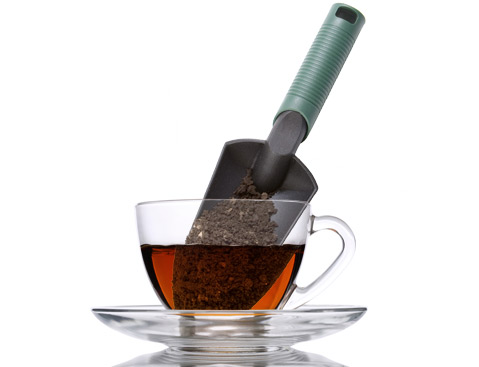Compost Tea

You’ve incorporated lots of compost or other high-quality organic matter (like well-rotted manure) into the soil in your garden and you’ve maintained a good layer of organic mulch on top of the beds, but there is one more thing you can do to increase the health of the soil. It’s time for a tea party in your garden. With compost tea, that is.
Compost is a living ecosystem with tons of microscopic inhabitants. Two of the most important types are beneficial bacteria and fungi. Properly made extracts of compost in water contain as much as 80 percent of the beneficial organisms present in compost. By adding these organisms to the soil, you can boost the actions they perform in breaking down organic matter and fending off pathogens. Applied as a spray, compost tea can also form a living film of the good guys that prevents the bad ones (like powdery mildew and rust) from gaining a toehold on foliage as well.
It is quite easy to make compost tea in small batches at home, and since it has a very short shelf life before those beneficial organisms begin to die, you can mix it up just when you need it. Sift the compost to remove the biggest, woody bits and either place it directly into a five gallon bucket, or hang it in a mesh bag, using about one gallon of compost. Fill the bucket three-quarters full with water and you are good to go. Steep for 12 to 24 hours until it is a deep brown color. Since one of the necessary ingredients for growth of these microorganisms is oxygen, it is critical to keep the liquid aerated. Periodic stirring can accomplish this, but one easy trick is to use an air bubbler such as those used in aquariums. Be sure that the bubbles are spread throughout the column of liquid as they rise. Strain and dilute the tea as much as one part tea to 10 parts water until it resembles a very weak brew before applying as a soil drench or spray.



